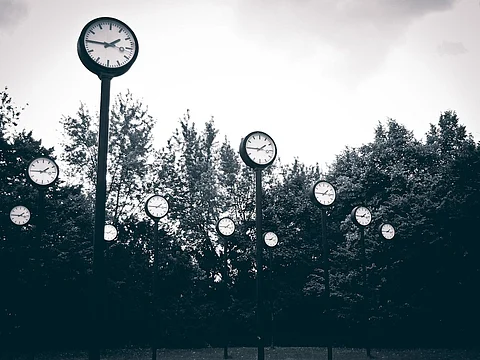

After years of talks and technical groundwork, the government is preparing to enforce a unified time standard across the country. A draft of the Legal Metrology (Indian Standard Time) Rules, 2025 is in the works, and it might soon become mandatory for all legal, commercial and administrative activities in India to align with Indian Standard Time (IST).
At present, many sectors in India – including industries, banks and telecom operators – rely on GPS satellites operated by the US to keep their clocks in sync. While convenient, experts have long flagged the risks of depending on a foreign time source. There’s always the chance of disruption, either through spoofing, jamming or plain old technical failure.
In fact, officials pointed out that the time standard used during the recent Operation Sindoor (a four-day military exercise against Pakistan) was deliberately kept away from GPS-linked systems to reduce vulnerability.
To back the transition, five Regional Reference Standard Laboratories (RRSLs) are being set up in Ahmedabad, Bengaluru, Bhubaneswar, Faridabad and Guwahati.
These labs will host atomic clocks and deploy secure technologies like the Network Time Protocol (NTP) and Precision Time Protocol (PTP) to deliver IST with accuracy down to the microsecond.
The goal is to ensure sectors such as financial markets, telecom, transportation, power grids and digital services all run on one tightly coordinated clock – and that clock ticks to IST, not to an international source.
For the average person, shifting to a unified time source might seem like a minor technical update. But behind the scenes, it could enhance everything from transaction security to accuracy in electricity billing. Synchronisation reduces the margin for error – and in sectors like telecom or stock markets, even a few nanoseconds can have consequences.
Officials argue that this also brings India closer to achieving "time sovereignty", a term that refers to the country's ability to maintain and disseminate its own official time without external dependencies.
At a recent round table conference in New Delhi, Consumer Affairs Minister Pralhad Joshi said that the upcoming rules will prohibit the use of alternative time references unless specifically authorised.
Consumer Affairs Secretary Nidhi Khare added that these new rules will help make India’s timekeeping infrastructure not just legally enforceable, but also digitally secure and globally benchmarked.
The time dissemination initiative, which led to the draft rules, has been in development since 2018, involving over 60 meetings with key stakeholders including ISRO, CSIR-NPL, the Cabinet Secretariat, and the National Security Council Secretariat.